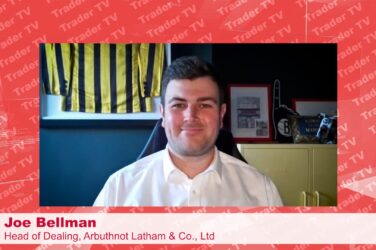Day One ELS Report: Thriving in a New Market Order
Surviving and thriving amid a constantly evolving regulatory and technology landscape — and how those two factors shape the optimal structure of an equity trading desk now and into the future — were some of the big themes tackled on the main day one of the Equities Leaders Summit 2019 in Miami, one of the biggest gatherings of buy side heads of equity trading.
In setting the scene for the two-day conference hosted at the Eden Roc Miami Beach by Worldwide Business Research (WBR), which also produces the TradeTech event series in Europe, event Chairperson and Aite Group Capital markets Industry Analyst Spencer Mindlin told the more than 350 delegates that 2019 was a “very interesting year” for US equities markets structure.
He said that while the industry finally “got to take a step back and digest MiFID II” there was still “a lot to chew on,” including an unprecedented number of new equity exchanges currently in the process of coming to market, Financial Industry Regulatory Authority’s (FINRA) takeover the Consolidated Audit Trail (CAT) project, and the London Stock Exchange’s pending $27 billion deal to buy financial data provider Refinitiv.
Creating a dynamic team structure
In day one’s opening keynote, BlackRock Global Head of Equity Trading Paul Whitehead and Eaton Vance Chief Diversity Officer Ingrid Jacobs Diversity discussed the need for the buy side to ensure that they have a diverse workforce, as well as the resulting business benefits that come from instituting a plan for inclusivity.
“It’s well established that diverse teams will come to better outcomes. The question of ‘why’ is easy to answer … the real work comes in implementing it. Hiring is very task-oriented, but inclusion is an attitude. It’s really about making people feel comfortable so they can bring their whole self to work,” Whitehead said.
Jacobs said that Eaton Vance gets “really sophisticated” questions diversity touching not only gender and race but also age, disability, military veteran status and LGBTQ inclusion, to name a few.
“There’s definitely the sense that firms will need to back up their words,” she said.
Whitehead said the fact that the buy side was in a “unique time” given the decade-plus long bull market, providing a perfect opportunity to evolve its trading desks.
Trading desk of the future
On the topic of the trading desk of the future, Whitehead discussed the technology and personnel requirements needed to move toward a true multi-asset desk, as well as the factors that are leading trading desks to cover more assets and the advantages of the model itself.
But he noted that going multi-asset doesn’t mean trading staff must become generalists.
“Being multi-asset doesn’t mean giving up your specialization,” he said. In fact, “you need deep experience in specific areas as trading becomes more complex.”
Methods for capital markets innovation, transformation and renewal were also addressed throughout the day, as the industry considers the best way forward in a post-credit crisis era marked by enhanced electronification, relatively low volatility and the growing importance of exchanges.
In his technology keynote presentation, J.P Morgan Asset Management Global Head of Equities Trading Technology Jon Glennie asked delegates to consider its buy side resource allocation and how to go about connecting to new trading venues.
He said his firm was re-imagining how it delivers its software solutions and is “thinking more like a start-up,” pushing out more releases, more often.
“When we talk about trading technology, it goes beyond mere trading. With our partners, we’re able to build comprehensive platforms and solutions to ensure we are as advanced as possible,” Glennie said.
Innovation and renewal in global trading
The question of how brokers can best prepare for long term survival with new market participants entering and the continued growth of systemic trading was addressed in a panel comprised of some of the industry’s relative newcomers.
Moderator Mindlin said that while markets are currently very efficient, there is also room for renewal and evolution, citing new entrants such as AI-powered trading venue IntelligentCross, trading technology vendor Dash Financial Technologies and HFT-turned-execution provider Potamus Trading.
Mehmet Kinak, Global Head of Systemic Trading at T. Rowe Price, said the US Securities and Exchange Commission (SEC) was also assisting with transformation.
“You wish that regulators would step in all the time, but historically it hasn’t always happened. I applaud the current SEC for putting us in a state of renewal … market structure should be constantly evolving,” he said.
Recalling a time when algorithms “felt like a black box,” Dash Managing Director of Portfolio Trading Jennifer Hubbs said her firm was working to address concerns over lack of transparency.
“We want to help people see a little deeper underneath the hood. This helps both us and our clients do our jobs better,” she said.
“The product we’ve built so far is phenomenal. As we continue to improve and plug the gaps, we expect future growth within the US and globally,” Hubbs added.
Roman Ginis, a former quantitative trader at Point72 business unit Cubist and now founder and CEO of IntelligentCross parent Imperative Execution, said the main impetus for starting IntelligentCross came out of a personal frustration with the difficultly in minimizing implicit trading costs, which noted represented the most substantial cost of trading.
“Historically, venues have not been part of the conversation around what makes an efficient market. In founding IntelligentCross, we wanted to make a meaningful impact on the industry by using innovation to improve execution quality,” he added.
As for a 2020 prediction, Ginis said: “I hope that trading costs — both implicit and explicit — go down.”
Weighing outsourced trading
In an afternoon panel, participants discussed how outsourced trading can bring improvements around cost-efficiency, compliance and execution quality to all aspects of trading.
Aaron Hantman, CEO of outsourced trading solutions provider Tourmaline Partners, told delegates that while outsourced trading has been around “for decades,” the services were traditionally oriented towards emerging managers.
“What we see today in the landscape is entirely different and there has been a lot of adaptation and evolution. At Tourmaline, we have three primary services, providing a complete 100% solution which can service emerging managers all the way up to those with multiple tens or hundreds of billions of assets under management,” he said.
“Seventy percent of our clients have at least one trader and in some cases groups of sophisticated traders. That’s where our biggest growth has been … we’re a conduit to brokers and liquidity sources that they cannot or choose not to access.”
Guy Cirillo, Business Development Manager at trading technology provider Fixnetix, said that the benefits of outsourcing were really about enhancing and supplementing a firm’s in-house resources.
“It’s adding to their bench, learning what their needs are and giving them the same level of service as an in-house employee,” he said.
Hantman added that deep levels of due diligence was essential for buy side firms looking for an outsourcing partner.
“Surveying the landscape and looking for any potential conflicts of interest will take on increasing importance. In the end, independence is paramount,” he said.
ELS 2019 continues on Thursday with Day Two panels looking at the impact of geopolitical tensions, the market data debate and the ETF revolution. SEC Commissioner Robert J. Jackson and Director of Trading and Markets Brett Redfearn will also speak.
Produced in association with Forefront Communications.






